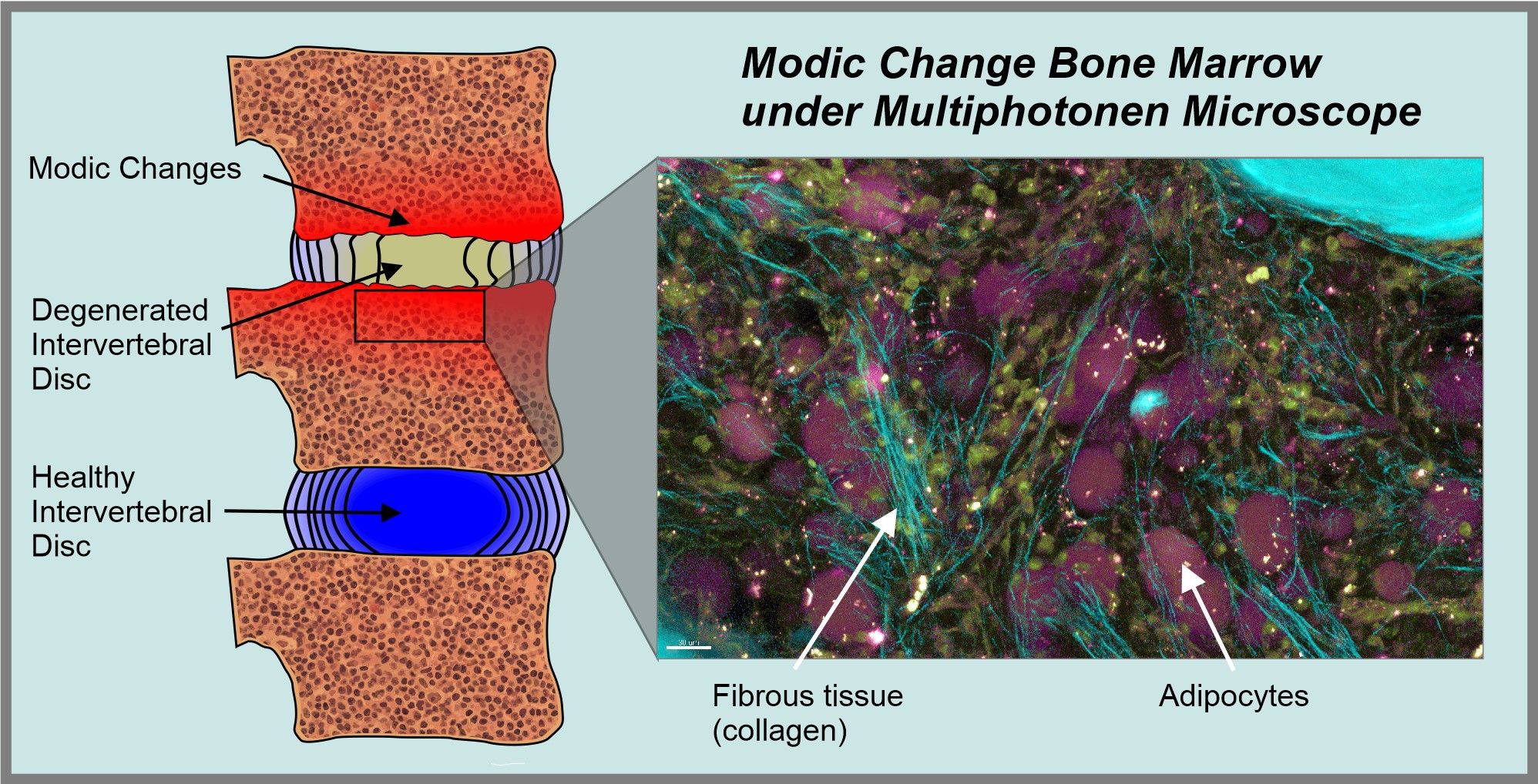Low back pain
The 'Global Burden of Disease Study' identified low back pain (LBP) as the world's most disabling condition. Vertebral bone marrow lesions – named Modic changes – coincide with LBP.
Modic changes are highly prevalent in LBP patients yet a poorly understood degenerative spinal disorder. Patients with Modic changes cannot be treated adequately, first because they cannot be identified in primary-care due to the lack of diagnostic tools, and second because there are no targeted treatments available for Modic changes.
Therefore, our aim is to develop biomarkers and targeted treatments for LBP patients with Modic changes. We will achieve this through the understanding of the interaction between intervertebral disc degeneration and bone marrow stem cell functioning. We address this with deep characterization of human surgical samples and by evaluating their behavior in in-vitro studies. We use state-of-the-art molecular assays and cutting-edge technologies such as multidimensional multiphoton imaging, single cell RNA sequencing, CyTOF, and DIA SWATH mass spectrometry.
We are part of the NIH Backpain consortium (BACPAC) and the UZH Clinical Research Priority Program (CRPP) “Pain”. The BACPAC Rand CRPP research programs are translational, patient-centered efforts to address the need for effective and personalized therapies for chronic low back pain.
Dudli-Lab


